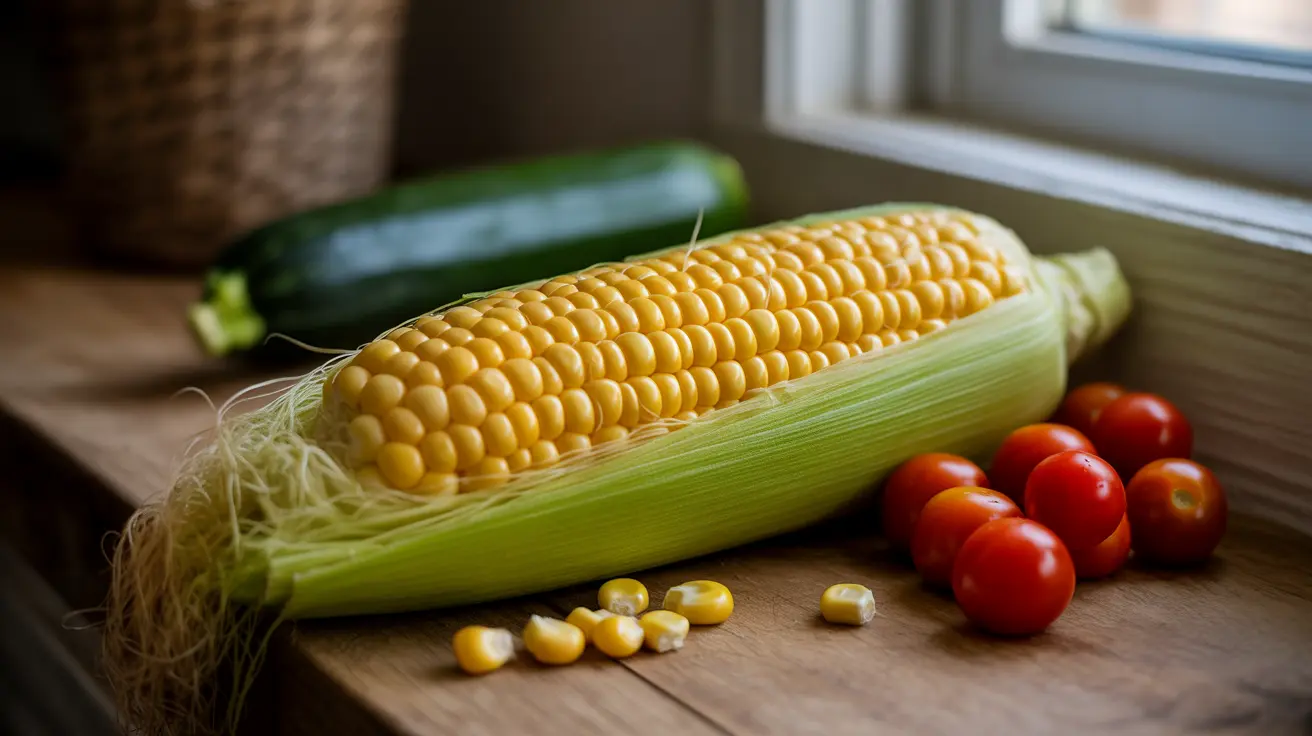Corn, a versatile and widely consumed grain, offers numerous health benefits when eaten as part of a balanced diet. From its rich nutritional profile to its potential impact on various aspects of health, understanding corn's properties can help you make informed dietary choices.
Whether you enjoy it fresh on the cob, as popcorn, or incorporated into various dishes, corn provides essential nutrients, fiber, and antioxidants that contribute to overall wellness. Let's explore the comprehensive benefits and considerations of this popular grain.
Nutritional Profile of Whole Corn
Whole corn contains a impressive array of nutrients that support various bodily functions. Each kernel is packed with complex carbohydrates, fiber, and essential vitamins and minerals including:
- Vitamin B6
- Thiamin
- Folate
- Magnesium
- Phosphorus
- Manganese
- Zinc
Unlike processed corn products, whole corn maintains its complete nutritional integrity, providing maximum health benefits. The natural combination of these nutrients supports energy production, cellular health, and immune function.
Fiber Content and Digestive Health
Corn's fiber content plays a crucial role in digestive health and blood sugar management. The grain contains both soluble and insoluble fiber, each offering unique benefits:
Soluble Fiber Benefits
This type of fiber helps slow down digestion and can assist in managing blood sugar levels by reducing the speed of glucose absorption. It also helps maintain healthy cholesterol levels.
Insoluble Fiber Benefits
The insoluble fiber in corn promotes regular bowel movements and helps prevent constipation by adding bulk to stool. It also supports the growth of beneficial gut bacteria.
Antioxidant Properties and Health Benefits
Corn contains several powerful antioxidants that contribute to various aspects of health:
Eye Health
The carotenoids lutein and zeaxanthin found in corn are particularly beneficial for eye health. These compounds help protect against age-related macular degeneration and cataracts by filtering harmful blue light and reducing oxidative stress.
Heart Health
The antioxidants in corn, combined with its fiber content, support cardiovascular health by helping to reduce inflammation and maintain healthy cholesterol levels. The grain's potassium content also contributes to blood pressure regulation.
Corn Allergies and Sensitivities
While corn allergies are relatively rare, they can cause significant symptoms in affected individuals. Common signs of corn allergy include:
- Skin reactions (hives, rashes)
- Respiratory symptoms
- Digestive issues
- Anaphylaxis (in severe cases)
Treatment typically involves avoiding corn and corn-derived products, working with an allergist to develop a management plan, and carrying emergency medication if prescribed.
Corn and Gluten Sensitivity
For individuals with celiac disease or gluten sensitivity, corn is naturally gluten-free and generally safe to consume. However, it's important to be aware of potential cross-contamination during processing and to choose certified gluten-free products when necessary.
Frequently Asked Questions
- What are the main nutritional benefits of eating whole corn compared to processed corn products?
Whole corn retains all its natural nutrients, including fiber, vitamins, minerals, and antioxidants. Processed corn products often lose significant nutritional value during manufacturing and may contain added sugars, salt, and unhealthy fats.
- How does the fiber in corn help with digestion and blood sugar control?
Corn's combination of soluble and insoluble fiber aids digestion by promoting regular bowel movements and supporting gut bacteria. The soluble fiber specifically helps regulate blood sugar by slowing glucose absorption.
- What are the common symptoms and treatment options for a corn allergy?
Common symptoms include skin reactions, respiratory issues, and digestive problems. Treatment involves avoiding corn products, following an allergist-approved management plan, and carrying emergency medication if prescribed.
- Is corn safe for people with gluten intolerance or celiac disease?
Yes, corn is naturally gluten-free and safe for people with celiac disease or gluten sensitivity. However, they should choose certified gluten-free products to avoid cross-contamination risks.
- How do the antioxidants in corn support eye and heart health?
Corn's antioxidants, particularly lutein and zeaxanthin, protect eye health by filtering harmful blue light and reducing oxidative stress. These compounds, along with fiber and potassium, also support heart health by helping maintain healthy cholesterol levels and blood pressure.




